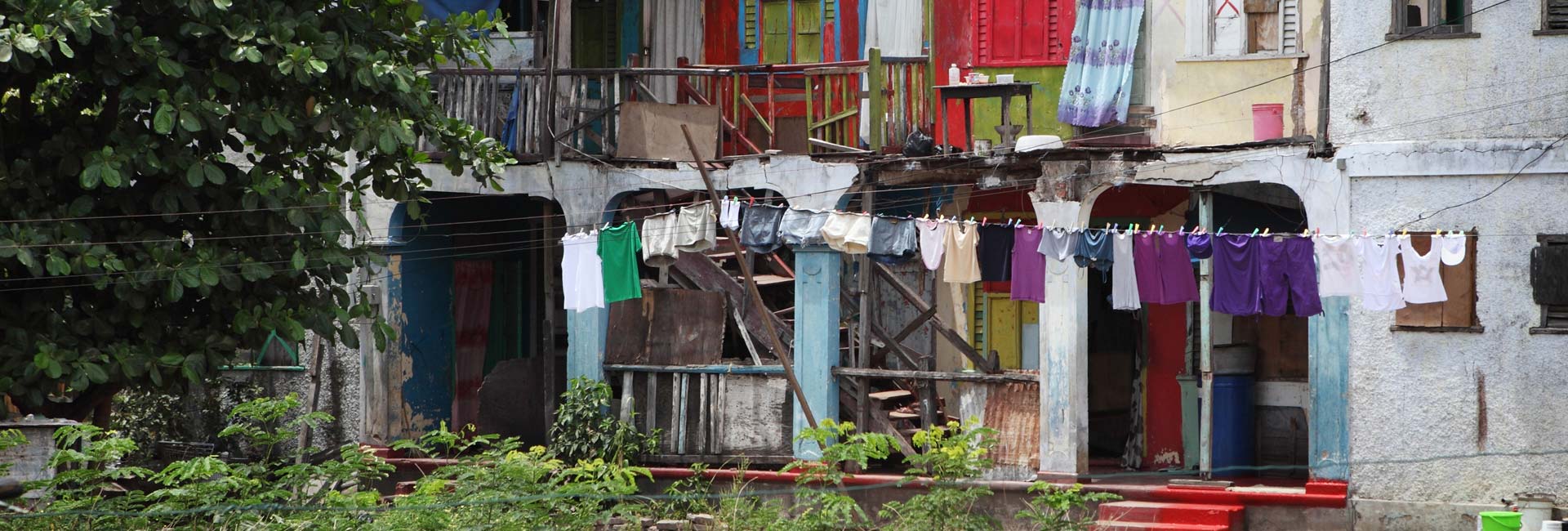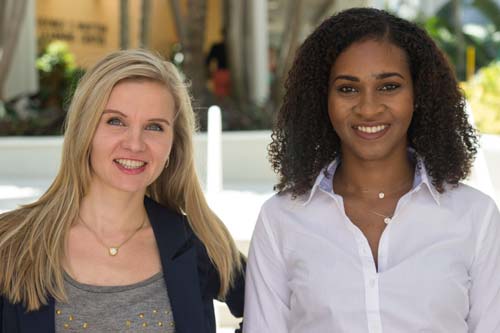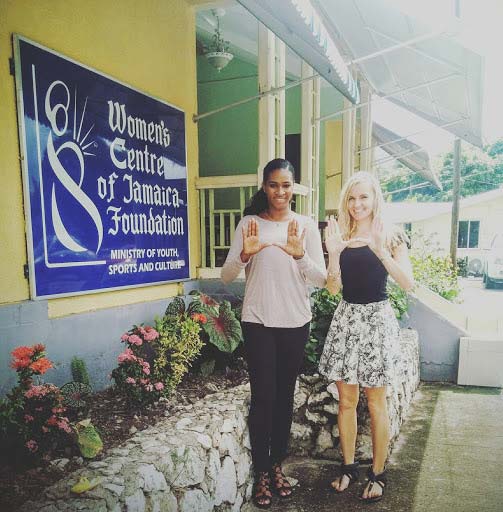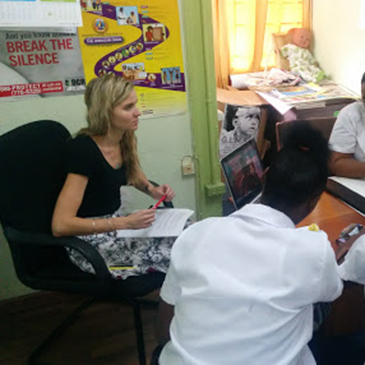

Doctoral students at the School of Communication are working on a project aimed at reducing adolescent pregnancy in Jamaica.
The first time Kerli Kirch and Soroya McFarlane met the girls enrolled in the Women’s Centre of Jamaica Foundation in central Kingston, the doctoral candidates in the University of Miami’s School of Communication were struck by their youthful faces and indomitable spirit.
“They were so young. They were just children,” Kirch recalls about her and McFarlane’s October 2016 visit to conduct focus-group sessions with 19 pregnant girls under age 17 in the Jamaican capital.
“Yet they did not feel sorry about themselves,’’ McFarlane adds. “Despite their circumstances, some admitted feeling positive about their future. Culture can be positive, and that is one of the positive aspects of a Jamaican girl. They are eternally resilient.”
The recipients of field research grants from the University of Miami Institute for Advanced Study of the Americas (UMIA), McFarlane and Kirch set out to apply their respective interests and skills to a communication project aimed at further reducing adolescent pregnancy in Jamaica, which has had some success in addressing the global public health concern that robs too many girls of their childhoods, and their futures.
About the Photo
Clothes hang out to dry at a dwelling in the downtown area of Kingston, Jamaica.
Join the Conversation:
Follow on
Twitter:
UM School of Communication, @UM_SoC
University of
Miami, @univmiami
UM News, @univmiaminews
In the late 1970s, adolescents were having more than 30 percent of the babies born on the Caribbean island. For many of them, their educations ended, their job prospects diminished, and their health, and that of their newborns, suffered. Today, thanks in part to seven government-supported women’s centers, which have programs aimed at keeping young mothers in school and from having repeat pregnancies, the number has plummeted by almost half, to 18 percent.

Yet Jamaica still has one of the highest teenage pregnancy rates in the Caribbean, with more than 7,000 girls leaving school every year to have babies.
Although previous researchers in Jamaica have identified some risk factors—such as lack of parental control or father figures in the household—McFarlane and Kirch are the first to look specifically at the role of culture, including socio-economic status and the media environment, in influencing health behavior.
“The women’s center has done a good job (in reducing the pregnancy rate) so we suspect there are cultural factors that drive adolescent pregnancy,” says McFarlane, who was born in Jamaica and has a keen interest in using communication to promote public health. “We have to uncover what’s truly at play. What did they see their parents do? What messages are they getting? Is it the beer poster in the corner shop that has a sexy woman on it?”

Or might girls be influenced by the acceptance of transactional sex—where, lacking aspiration or avenues to self-sufficiency, they are encouraged to have relationships with men who will take care of them financially?
That was the case with one young Jamaican woman featured in a mini-documentary Kirch showed the girls at the women’s center. In the short film, funded in part by the United Nations Population Fund, the Jamaican mother of a 3-year-old boy recalled how, when she was just 12, her father urged her to become sexually active so she could have the lunch money he would not provide. Her son was born the following year, fathered by a man who went into hiding to avoid prosecution.
For the Estonia-born Kirch, who is interested in how audiences perceive mediated, or non-face-to-face communication, the video presented the perfect opportunity to hone her skills as a communication scientist—someone who can help public health specialists design targeted and effective messaging based on formative research.
“You have to understand the factors that need to be addressed before you know which medium and what messages will succeed,” says Kirch, who was the first to show the U.N.-sponsored documentary that focuses on the difficulties of teenaged parenting to girls at the women’s center. “They thought it was interesting, but they wanted to see the teenagers succeed. They wanted the message to be: even if it happens, life is still possible; you can still achieve.’’
Which, Kirch and McFarlane believe, could be the central message of a culturally centered video that, one day, they’d like to produce, or more accurately, they’d like to help the girls at the center produce.

For now, under the guidance of Soyoon Kim, an assistant professor in the Department of Communication Studies, they are analyzing and reporting the results of the initial interviews they conducted in Jamaica to identify relevant cultural influences, and effective messaging. But they hope to find the resources to take the next step and enlist the girls at the center in documenting their own stories—in sharing how, despite their circumstances, they will succeed.
“Helping them tell their stories can be empowering, so we want to involve them in every step of the way,” McFarlane says.
“Eventually,” Kirch adds, “they are going to be the young people who change the culture.”
- MAYA BELL / UM News
